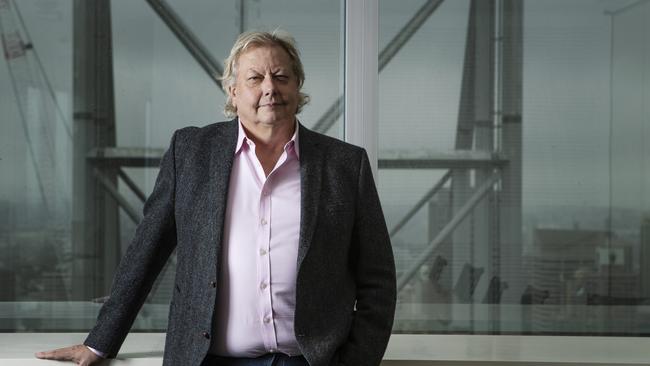Facebook, Google not evil, break-up attempt a waste of time: WiseTech Global CEO
Attempts to break up Facebook and Google are a waste of time, warns WiseTech founder Richard White.

Breaking up Facebook and Google to counter their corporate dominance is a waste of time and they’re not inherently evil, says billionaire tech entrepreneur Richard White. The chief executive of WiseTech Global made the remarks while speaking on the impact of the global tech giants during a technology innovation summit in Sydney today.
Mr White warned getting Facebook to offload Instagram or WhatsApp, or Google to sell YouTube wouldn’t achieve anything. “If you want to spend 10 to 15 years in court, go for that,” he told the summit.
“But I don’t think that’s really an option. It plays well to the crowd. You can speak in parliament about those sorts of things but that doesn’t really work.
“I think what does work is changing the rules of the game to make it safer for people and their personal data. But I also don’t think that those companies are innately evil.
“We’re dealing with a complex problem that has many facets to it and throwing egregious regulation at it won’t solve the problem.”
Last week The Australian Competition & Consumer Commission addressed personal privacy in its report on digital platforms. Its recommendations add to existing plans by the Federal Government to stiffen penalties for privacy breaches and a recommendation by The Australian Law Reform Commission for an offence of serious invasions of privacy.
The ACCC wants organisations and businesses to be more accountable for the personal data they hold and for consumers to have more control over their personal information, including an enforceable right to have it deleted.
Mr White, a billionaire and former musician who repaired guitars for AC/DC, told the conference that control of one’s personal data is a human right.
He said some algorithms that used people’s personal data weren’t “very smart”. Case-in-point is when you are served ads for goods you have already bought. “That’s pretty stupid. I mean, I’ve already bought it. So why are you throwing ads at it, there’s no sale here. Because the advertisers are paying for those ads, and I’m going poor bastards, you don’t know what you’re getting sucked into.”
He says the issue of personal privacy and the use of personal data goes beyond two companies. There was a tendency to collect large amounts of data since the 1990s. But there’s been a lack of regulation on one side, a lack of motivation on the other and shareholder pressure for returns.
“One thing that we should all agree on is that we should protect our children. Up until some sort of reasonable age, they really don’t understand what privacy is, or why they should have it, or how they should delegate it.
“Companies that use your personal data should be telling you in great detail when they’re using that data and what they’re using it for. And when they decide to use it somewhere else in another form, or monetise it in some way that is not part of the original agreement, or intent, on your understanding at the time, they should tell you about the change, and they should do it opt-in and not opt-out.”
He says that in Australia, the use of private data needs to be nationally enforced and everyone should be involved in discussions about it.
He repeated concerns that companies that fail to embrace new technologies when they had an opportunity potentially face the scrap heap. BlackBerry, Kodak and Encyclopaedia Britannica were examples of this. Others that did embrace technology which were small or midsize were now dominant or large players.
He says Australia is out of kilter with other countries where tech companies are the biggest players.
“We need to grow our economy through technology. Twenty, thirty years ago, the five largest companies in the world were all banks and industrials. Today, the top five companies in the world are all technology businesses.
“But ultimately, the top 20 companies in Australia are not technology companies. And that’s a misstep with the world.
“We are underweight on R&D … and that’s something we can dramatically change, by changing our focus just a little bit. It will in fact increase the value of employment and save us from unemployment if we do that properly.”
He says the threat to jobs from technology is most prominent among low-skilled, low-paid jobs. “Some of that will be a very slow burn. It will take 10 to 15 years for that to really hit. But those jobs might not be available for our children and our children’s children. And they’ll have to go one or two levels up in terms of their education and where value is created themselves.
“If we don’t change their attitude to those things, we’ll push them into those same low-skilled, highly repetitive jobs.
“People in those jobs act like robots anyway, we don’t really want to have that as a society of making humans into robots. Let the robots do the robotic stuff.”



To join the conversation, please log in. Don't have an account? Register
Join the conversation, you are commenting as Logout